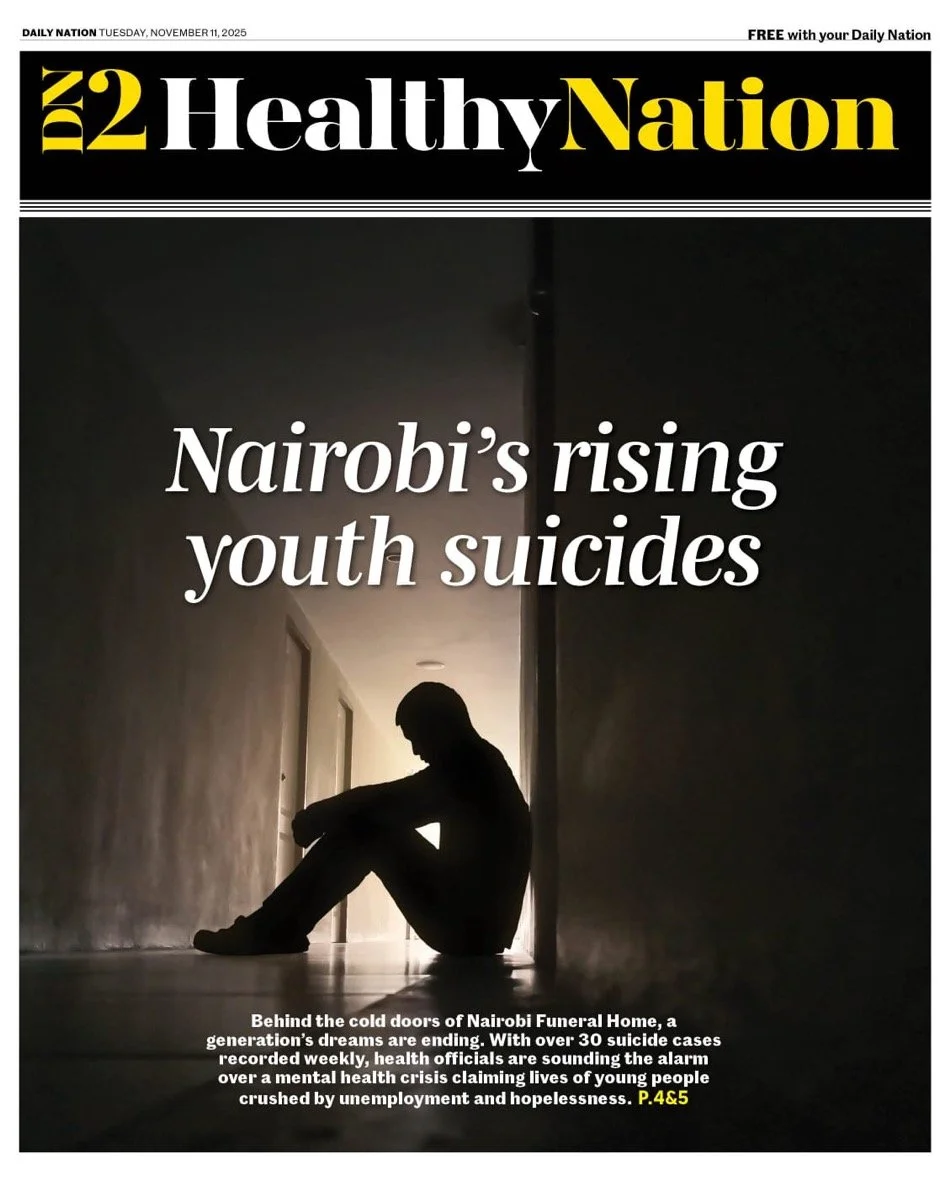NAIROBI, KENYA: Opinion Piece - Suicide Deaths Alarming
Daily Nation’s feature on Youth Suicide in Nairobi
Following yesterday’s Daily Nation feature on youth suicide in Nairobi, I shared my thoughts on Twitter about the practical macro level ways that the Kenyan government and Nairobi citizens can respond to this crisis. I ended up turning those thoughts into an Op-Ed that was published by Kenya’s Daily Nation. Read the piece below, and see my other Op-Eds here.
Suicide Deaths Alarming
A recent report in this publication’s Healthy Nation segment revealed staggering statistics about suicide in Nairobi. According to the city’s main mortuary, which has a capacity of 200 bodies, it receives 25–34 suicide-related deaths every week, with 8–10 of these being youths.
The facility’s representative describes this as deeply worrying and reflective of a widening mental health crisis in the city.
Alarming as these numbers are, they provide a foundation for urgent action. In previous years, Kenya and most African countries lacked reliable data on mental health and suicide, largely due to stigma and taboo. Today, conversations are more common, and while data collection remains imperfect, reports like these make the scale of the crisis visible.
From the report, unemployment, addiction, and navigating identity emerge as some of the main challenges contributing to youth suicides. The impact extends far beyond those who die. Families are devastated, communities shaken, and first responders are tasked with managing the aftermath without proper support.
Historically, mental health issues in Kenya have been met with the formation of committees and the release of reports. But as the data shows, this is more than a mental health issue. It intersects with employment, social structures, urban planning, and access to supportive services.
Public investment
The few crisis lines in Nairobi operate only during standard business hours and rely heavily on donor or private funding rather than guaranteed public investment. While these services are critical, they can’t meet the scale of the youth mental health crisis.
Given the scale of this national mental health crisis, a deeper change requires citizen demand and government accountability: part of our taxes should go toward creating, financing, and staffing 24/7, anonymous, and free mental health hotlines and warm lines, either as new services or by upgrading existing ones, so that every young person in distress has access to trained professionals without cost barriers.
Research demonstrates that such helplines reduce distress, hopelessness, and suicidal intent, providing immediate relief while broader multi-sector interventions are implemented. In one study, 487 callers to a crisis helpline showed significant improvement immediately after the call and at follow-up (1–2 weeks) in hopelessness, suicidal intent, entrapment, and perceived social support.
While these findings highlight short-term benefits, evidence on long-term reduction in suicide deaths remains limited, emphasising the need for follow-up, integrated care, and multi-sector interventions.
Trauma
Equally important is supporting the first responders who manage suicide cases on the ground. Police officers, ambulance crews, and other personnel face repeated exposure to trauma, which can lead to PTSD, burnout, and emotional exhaustion. In Nairobi, formal psychological support is rare, leaving responders vulnerable and less effective.
Structured debriefing programs, trauma response training, and peer support systems can help these personnel process experiences, build resilience, and continue to provide critical services, complementing, but separate from, public helplines.
With the election season approaching, citizens should scrutinise political candidates on this front. Beyond promises, what tangible policies, budgets, and programs will they commit to ensuring young people in Nairobi and across Kenya have access to support, opportunity, and a sense of hope? How will leaders ensure that every young person has a life worth living, with social and mental health safety nets in place?
This crisis demands more than committees or reports. It requires multi-sector investment, coordination, and action, combining health, social policy, employment programs, urban planning, and community-based interventions. Nairobi’s youth deserve nothing less.

